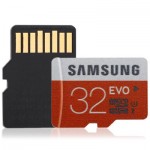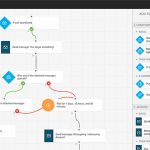Data, Analytics and Rewards Strategies
Largely owing to this persistent pandemic, and growing discussions around fair pay, employees need and expect more. There’s no getting around it. In some sort of Great Awakening, people are switching jobs, careers, and causing all manner of flux, in terms of business and workforce models. The good news is that through data, analytics and rewards strategies, your organization can gain the agility you need while improving the employee experience to help with recruitment and retention. Read on for more.
What is Meant by Employee Rewards?
Let’s define terms. Employee reward programs are established by organizations to reward and reinforce performance as well as to motivate, recruit, and retain staffers, either individually or collectively. Such rewards may be monetary or otherwise.

What is Meant by Employee Experience?
Employee experience refers to what employees observe, encounter, and perceive over the course of their tenure with an organization, beginning with their candidacy.
Why is the Employee Experience Important?
During this lingering pandemic, the employee experience is more important than ever, as the ability to lure and keep desired employees is paramount. Therefore, organizations must determine what’s working – and not – for the people who work for them.

Photo by Brooke Cagle on Unsplash
How can I Improve Employee Experience?
Here are some suggestions for re-imagining the employee experience:
- See things from employees’ vantage point. You can do this while keeping your eye on your business goals. In fact, the two are not mutually exclusive, and should always be aligned. However, a positive employee experience should certainly be a priority.
- Listen to your employees. Consider engaging a firm such as Mercer to handle your employee surveys and total rewards program. Such a consultant can focus on the matter without disruption, freeing you to deal with the day-to-day aspects of running a business.
- Think holistically. It’s not always about employees’ financial and physical health when it comes to rewards, your culture, and workplace wellness. You should also consider your people’s emotional wellbeing. After all, health is wealth – your employees’ as well as, ultimately, the organization’s.
- Involve all stakeholders. While, on paper, at least, the employee experience may fall to HR, no one department can handle such an undertaking. Because the business initiative touches everyone, all stakeholders, including IT and communications, must be involved.
- Build in agility. As we say, the current situation is so fluid that agility is a must. You want to create for the overall “experience,” not to simply solve a pressing concern. And that requires a customized analytical, data-driven approach that helps you understand your workforce and prevents costly mistakes.
Why Must I Have a Holistic Rewards Strategy?
Well, because it’s simply now insufficient to offer sweet pay and benefits. Take it to the bank: in deciding where and how they want to work, employees are increasingly looking for an enhanced rewards system, one that includes, say, an opportunity to be part of something bigger than themselves, and to grow and advance. Employees also increasingly want to work for organizations that are more socially responsible. For instance, in a recent Mercer survey, 37% of employees said they preferred a company that has strong values, mission, and purpose.
Now you know that, nowadays, it takes a data, analytics, and rewards strategy to address the tumult that’s transpiring — and ever evolving — in today’s business environment. You must get out front on this if you want to truly compete, as well as recruit and retain talent. We suggest you get assistance from the HR consultant Mercer, which has the expertise and know-how to help you put in place the right rewards and incentives to create a positive workplace experience.













